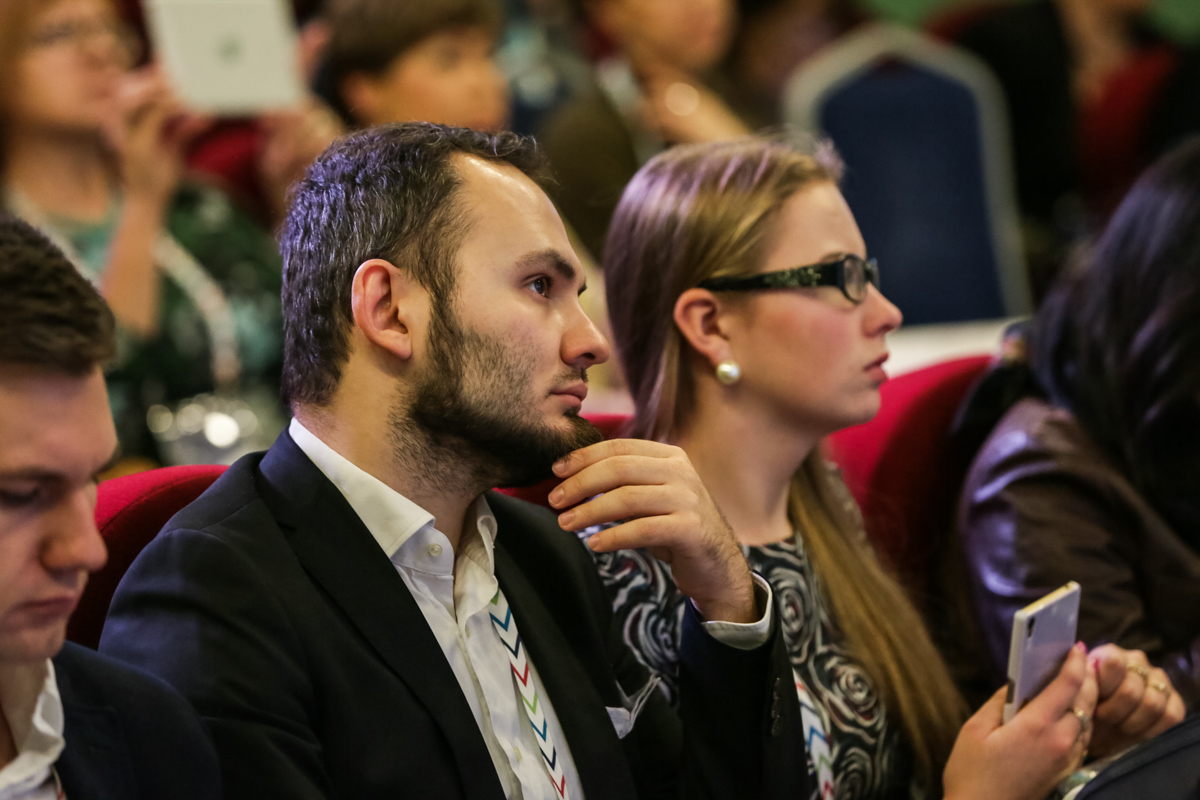How not to forget letters in the “age of the digits”: ICF

At the panel “Culture, education, science in the society of digital economics”, which was at the forefront of the section “Education” at the VI St Petersburg International Cultiural Forum, the experts talk us through how the digital age influences the ways we perceive information, whether our brain can adapt to the big data, and how education helps us respond to new challenges.
In 2017, the Government of the Russian Federation adopted a programme “Digital economics of the Russian Federation”. To implement the programme, we need 13 years when our country will create favourable conditions to build a society of knowledge, increase well-being and life quality, and increase digital literacy and safety.
One of the key roles will be played by science and education. The experts were greeted by the head of the section “Education”, SPbU Rector Nikolay Kropachev. The moderator of the discussion Igor Drozdov, who is also a Chairperson of the Board of Directors of Skolkovo and SPbU graduate, said that education and research at the digital age are diverse: “We are talking about technologies, but we have to think about how they influence us”.
The neurosciences in this respect are vital, says SPbU Professor and head of the Laboratory of Cognitive Research Tatiana Chernigovskaya. “Our brain is the most complex thing in the whole Universes, and all we know about it directly influences how we are evolving. If we gain insight into how the brain works, we will be able to understand how other systems operate and dramatically change the means of communications”, — said the expert.
How the brain works is especially vital in education, said Tatiana Chernigovskaya. “The digital society changes how we perceive information, and the main thing we must teach our children is how to elicit the information we need, control what they pay for essay attention to, and boost their memory capacity. Education physically changes the brain structure, but these changes can benefit us only if we are exposed to hard tasks to solve, when we have to invent something, write, or argue”, — said the expert.
Education plays a leading role in the society of digital economy. The Deputy Minister of Education and Science Grigorii Trubnikov said that culture, education, and science are the three whales the Earth is rested on: “Although there are many politically complex situations on the Earth, religious and territorial conflicts, these three spheres are nevertheless the structures that bridge the gap between countries and nations”.
SPbU Rector and head of the section “Education” Nikolay Kropachev told us through how we can implement this thesis in practice. “Much is said about digital economy today, but most people think that it is not related to our life. The situation is however different. The digital economy is incorporated into all spheres of our life. The role that education plays in this process is increasingly gaining momentum, and it defines how we educate and prepare students and staff to live in the digital age”, — said SPbU Rector.
Recently, the meeting of the SPbU Academic Council discussed how law would develop in the age of the digital economy. In the nearest future, the University will discuss the issues from the point of view of all the sciences: economics, biology, and psychology to name but a few.
30
educational programmes SPbU offers are related to the digital economy.
The University offers about 30 educational programmes directly related to the digital economics and a number of programmes in the big data. In 2018, the University is planning to open new programmes essay writers, among them is Digital Economics. SPbU is expected to become a centre to educate and prepare students to work in the digital economy.
About Forum
The VI St Petersburg International Cultural Forum was held in November 16-18, 2017. The Forum’s organisers: Government of the Russian Federation, Government of St Petersburg. The VI St Petersburg International Cultural Forum is supported by charitable foundation «Arts, Research, and Sports”.
The Forum has two parallel flows: professional essay company and public, and three fields. The extensive business programme can be of interest to anyone in culture. The business programme has 14 sections headed by the Russia’s leading experts who create an agenda. The platform can help implement the projects and sign agreements in culture. The festival programme features a number of events in St Petersburg.
The Forum awards the following prizes: “An Art patron of the year” for considerable contribution in the cultural projects and a prize of Anatolii Lunacharskii that is a unique prize awarded to the worker of non-creative professions in culture.

